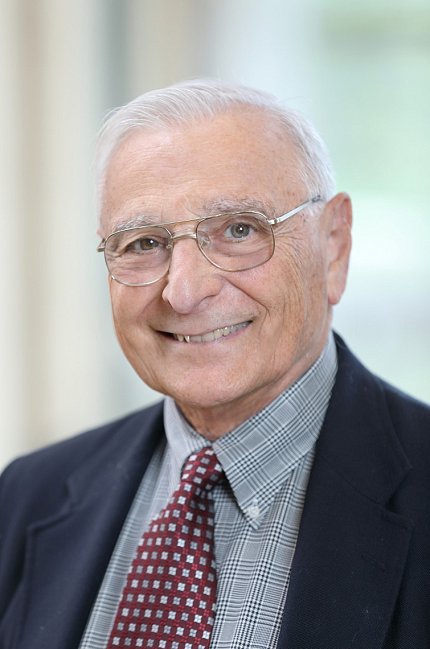NIAID’s Tramont Is Mourned

Dr. Edmund Tramont, associate director for special projects in NIAID’s Division of Clinical Research, died Mar. 5, after a brief illness. He was 83 years old.
Born and reared in Wallingford, Conn., Tramont developed a keen interest in microbiology as a student at Rutgers University. He graduated from Boston University School of Medicine in 1966. Tramont was drafted into the army in 1968, just two years after completing his medical degree, and began a residency at Walter Reed Army Medical Center. One of his first patients was Gen. Dwight D. Eisenhower.
Emerging as a leader in military infectious diseases, he established research programs at both Walter Reed Army Medical Center and Walter Reed Army Institute of Research. Through these organizations, he helped develop vaccines for myriad diseases that impact not just the armed forces, but also society in general. He also authored the Army’s first policies on managing HIV and AIDS, protecting both patients and force readiness.
After 23 years of service, Tramont retired from the Army in 1991 and was awarded the Army Distinguished Service Medal. He was recruited to join the staff at the University of Maryland, Baltimore, where he restructured the Medical Biotechnology Center and helped establish the Institute of Human Virology.
In 2001 Tramont became director of NIAID’s Division of AIDS (DAIDS). He helped lay the groundwork for the international focus of DAIDS clinical research activities, which are still flourishing today. He said the division should foster research in the populations that can most benefit. This approach bolstered the overall government approach to treatment and prevention of HIV through the PEPFAR program.
“I met Ed immediately after I arrived at NIAID in 2006,” said acting NIAID Director Dr. Hugh Auchincloss, in an email to staff. “He spent many hours teaching me the intricacies of conducting HIV research on a global scale. More recently…Ed has called several times, generously offering to provide advice and support at any time. I will personally miss his presence at NIAID.”
Dr. Richard Koup, acting director of the Vaccine Research Center (VRC), noted, “When the VRC was in its early days, Dr. Tramont’s counsel helped to establish our early HIV vaccine development strategies…Throughout his career, he was a friend, advisor and colleague to many of us. Dr. Tramont’s passion, dedication, ingenuity and honesty made him an invaluable contributor to the research community, and he will be greatly missed.”
In more recent years, as an associate director for special projects, Tramont advised researchers throughout the world who were focusing on emerging diseases including SARS and Covid-19.
“Ed belongs in a hallowed category of dedicated souls who believed in doing good and striving always to heal the sick and prevent illness in the healthy,” said Abe Mittelman, senior advisor to the VRC director who served as the VRC’s first associate director for management and operations. “He was always sharply focused on achieving positive public health goals and on improving outcomes for mothers and babies exposed to HIV (especially in Africa), even when it wasn’t always at the top of other people’s priority lists. His work in the Department of Defense established baseline standards of care and, when he came to NIH, he worked to save lives at home and abroad...
“I formed a trusting relationship with Ed,” Mittelman continued, “and he was always highly supportive of the need to ensure good management controls and good oversight of operational matters at the VRC. If, as I strongly believe, the VRC (embodied by its staff) has always had an uncommon zeal to stay focused and passionate about its work, Ed helped early on to inject his enthusiasm into that VRC ‘DNA’ and did his part to help keep it that way. The VRC has evolved much since the early days, but that zeal has never waned, and Ed’s character reflects that.”
Tramont’s survivors include a son, Dr. John Tramont, two daughters, Karen Altobello and Dr. Margaret Mulford, and seven grandchildren.
